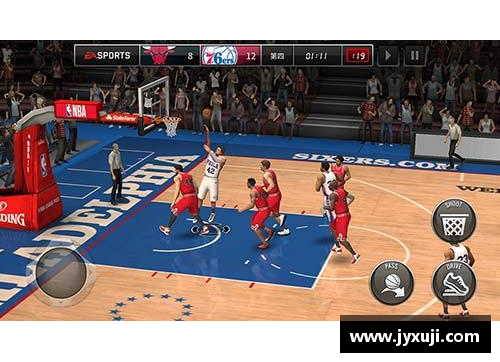NBA比赛:半场休息,赛场中的战略分水岭
An NBA game is not merely a test of athletic prowess but a strategic dance on the hardwood. The halftime break stands as a pivotal moment, where strategies are adjusted, weaknesses addressed, and new tactics implemented. This article delves into the significance of halftime in NBA games as a strategic watershed, exploring its impact on gameplay, team dynamics, coaching decisions, and the psychology of players.
1、游戏节奏与策略调整
Halftime in an NBA game marks a crucial juncture where teams assess the rhythm of the game. Coaches analyze the first half's performance metrics, such as shooting percentages, turnovers, and defensive lapses, to refine their strategies. Adjustments in offensive plays or defensive schemes are meticulously planned during this break to exploit opponents' weaknesses or counter their strengths. The tempo of the game often shifts post-halftime, reflecting the strategic adaptations made in the locker room.
Strategic adjustments are not solely tactical but also psychological. Teams aim to disrupt the momentum of their opponents or capitalize on their own newfound rhythm, often leading to decisive shifts in scoring runs or defensive dominance.
Coaches play a pivotal role during halftime, not only as strategists but as motivators. Their ability to instill confidence, correct errors, and inspire adjustments can redefine the course of the game.
2、团队动态与沟通
The halftime break fosters essential team dynamics beyond strategy sessions. Players convene to discuss on-court communication, individual matchups, and collective goals. Locker room morale and camaraderie are vitalized or tested during these moments, influencing team cohesion and performance.
Leaders emerge during halftime, whether among players or coaching staff, to rally the team or provide critical feedback. This period of reflection encourages players to realign their focus, reaffirm their roles, and commit to collective success.
fun88乐天堂Team chemistry is often palpable post-halftime, as adjustments in play style or defensive intensity reflect a unified front against adversaries. The strategic unity forged during this break can translate into cohesive gameplay and resilience under pressure.
3、教练决策与战术部署
Coaching decisions at halftime extend beyond tactical adjustments to encompass strategic foresight and game management. Substitutions, play rotations, and strategic timeouts are strategically timed to exploit opponents' vulnerabilities or to mitigate emerging threats.
Halftime presents an opportunity for coaches to recalibrate their game plan based on statistical analyses and player performance evaluations. Tactical innovations or unconventional strategies may be unveiled to surprise opponents or capitalize on identified weaknesses.
The efficacy of coaching decisions during halftime often dictates the trajectory of the game, influencing momentum swings, defensive resilience, and offensive efficiency. Successful adjustments can lead to game-changing performances and memorable comebacks.
4、球员心理与比赛态度
Halftime serves as a psychological reset for players, offering a brief respite amidst the intensity of competition. Mental fortitude, focus, and resilience are reaffirmed or rebuilt during this break, influencing individual performances and team dynamics.
Players confront halftime with varying mindsets—some seek redemption for earlier mistakes, others strive to maintain momentum, while rookies may find motivation in supportive locker room camaraderie. The psychological response to halftime can determine the outcome of clutch moments and pivotal plays.
Moreover, halftime rituals—whether visualizing success, receiving motivational pep talks, or adjusting personal strategies—shape players' mindsets for the remainder of the game. The mental preparedness cultivated during halftime often translates into decisive actions and game-winning contributions.
总结:

Halftime in NBA games epitomizes a strategic watershed where gameplay tempo, team dynamics, coaching decisions, and player psychology converge to redefine competitive outcomes. It serves as a pivotal moment for strategic recalibration, fostering resilience, unity, and tactical innovation essential for success on the court.
The significance of halftime extends beyond physical rest to encompass a psychological reset, where teams harness collective strengths, confront weaknesses, and emerge revitalized to seize victory.

发表评论